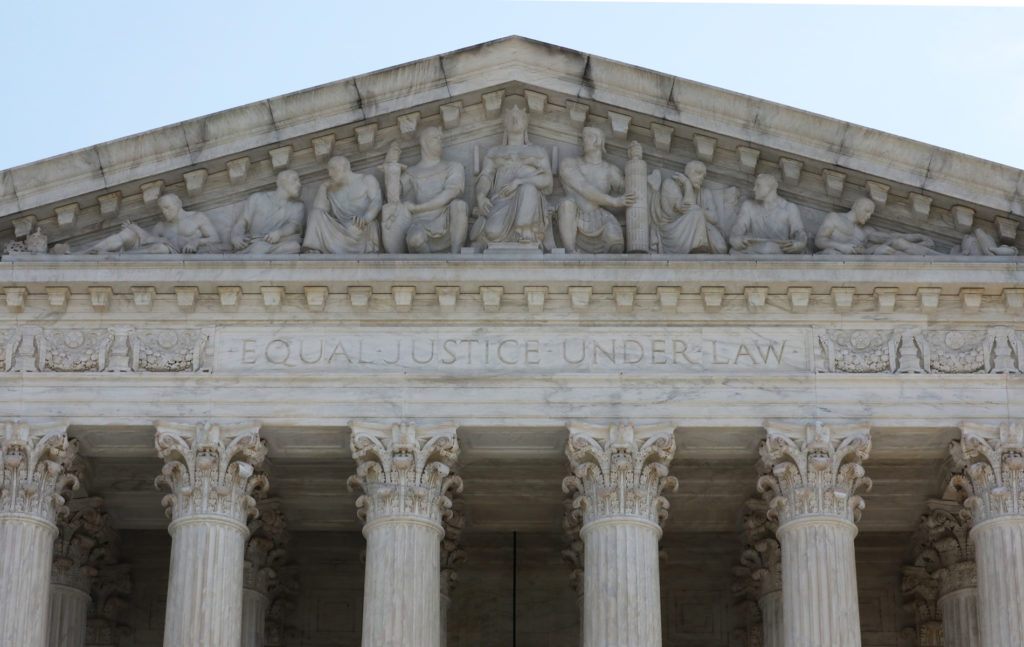
During the last week of June, the U.S. Supreme Court issued rulings in two cases—303 Creative v. Elenis and Groff v. Dejoy—that further protects the basic rights of Americans to free speech and religious liberty. Here’s the run-down of what you should know about two of the most important cases of the Supreme Court’s latest term.
303 Creative v. Elenis
The overview –
The 303 Creative case was a legal dispute involving graphic designer Lorie Smith who, because of her Christian beliefs about marriage, refused to create a website for a same-sex wedding. The case was about whether a state public accommodation law violates the First Amendment’s free speech protections.
The Colorado law –
The law in question is the Colorado Anti-Discrimination Act (CADA), which expanded anti-discrimination protections in such a way that businesses are required to offer the same services to same-sex couples that they offer to heterosexual couples. The case was first filed in 2016, and the district court concluded that applying CADA to 303 Creative is constitutional. On appeal, the Court of Appeals for the Tenth Circuit agreed.
The Supreme Court ruling –
However, the Supreme Court ruled in favor of the graphic designer’s free speech, stating that the government cannot compel an individual to speak a certain way or to promote a message with which they disagree. The court specifically clarified that the First Amendment prohibits Colorado from forcing a website designer to create expressive designs that require her to include messages with which the designer disagrees.
The implications –
The court’s decision in the 303 Creative case is expected to have a significant impact on the free speech rights of all Americans by reaffirming the right to engage in free speech without worrying about legal repercussions from public officials.
For more on the 303 Creative case, see: Explainer: Supreme Court Rules in Favor of Free Speech in 303 Creative Case
Groff v. Dejoy
The overview –
The Groff v. DeJoy case was an employment dispute involving postal Gerald Groff, a Sabbatarian Christian whose beliefs make him unavailable for work on Sundays. Groff claimed that the U.S. Postal Service (USPS) violated his religious freedom by requiring him to work on Sundays delivering packages for Amazon.
The USPS’ response –
The USPS offered Groff certain “accommodations” such as offering to adjust his schedule so he could come to work after religious services or telling him he should see if other workers could pick up his shifts. The USPS even suggested Groff choose a different day to observe the Sabbath. Groff claimed that these supposed accommodations did not eliminate the conflict between his religious practice and his work obligations and that the USPS had therefore not provided him with a reasonable accommodation.
The lower court ruling –
The lower court had ruled against Groff, holding that his request would cause an undue hardship on the USPS and lead to low morale at the workplace when other employees had to pick up his shifts. The lower court ruling relied on the “undue hardship” standard set in the 1977 case, Trans World Airlines, Inc. v. Hardison.
The Supreme Court’s ruling –
However, the Supreme Court issued a unanimous ruling in favor of Groff, stating that federal law requires an employer that denies an employee a religious accommodation must show that the burden of the accommodation would result in substantially increased costs. The ruling also clarifies the definition of “undue hardship” for employers faced with a religious accommodation request.
The implications –
The court’s decision strengthens religious liberty in the workplace and reaffirms that employers cannot discriminate against employees on the basis of religion. The ruling will impact the religious freedom rights of all Americans and reaffirms the right to practice one’s religion without fear of discrimination in the workplace.















